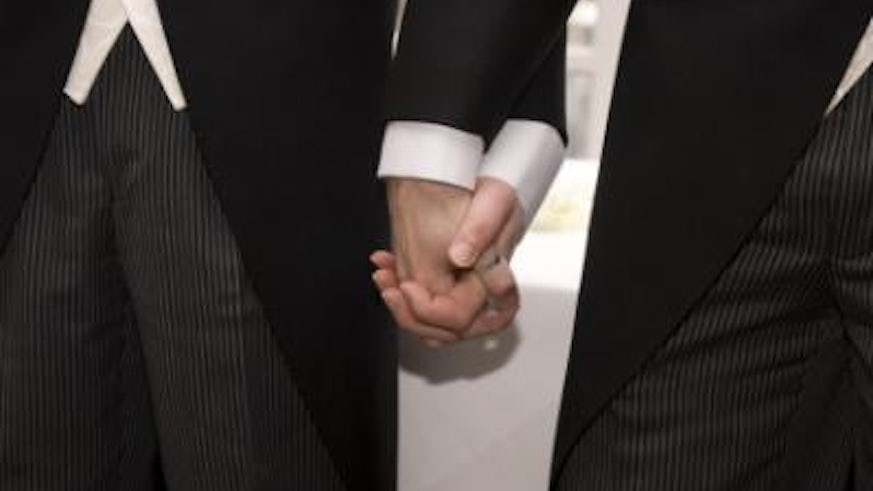Why a small change makes a Big Day
28 March 2014

It's time to revamp the photos and sharpen the footage of gay celebrities, writes Dr Leanne Smith from Cardiff Law School.
For the second time in a decade, gay weddings will dominate the media this weekend. The first time was in 2005, when the first civil partnerships took place. This time, the implementation of the Marriage (Same Sex) Couples Act 2014, which makes gay marriages legal, is the cause celebre.
Saturday's images will bear striking resemblance to those published nine years ago. Moreover, because the language of civil partnerships was never comfortably absorbed into popular consciousness, civil partners and commentators commonly discussed them using terms such as 'husband', 'wife', 'wedding' and even 'marriage'. Consequently, observers might be forgiven for wondering what has actually changed. The paradoxical answer is: not very much at all, but also a great deal.
In terms of their legal consequences, civil partnerships are almost identical to marriage so, practically speaking, the legalisation of same sex marriages will make little difference to most couples. Neither has the advent of same sex marriage radically altered the institution of marriage. Certainly, the definition of marriage has changed from explicitly heterosexual to gender neutral. But this is not revolutionary. The legal definition of marriage has been altered many times in the history of English law. The changes have facilitated divorce, introduced separate concepts of civil and religious marriage and recognised wives as the equals of their husbands. The introduction of gay marriage simply confirms the fact that marriage is an evolving institution, not a static historical or religious concept.

Some argue that their personal religious understanding of marriage is undermined and threatened by the legalisation of gay marriages. It is difficult to understand how this is so. Religious groups ceased to have a monopoly on the meaning of marriage when civil marriages were introduced in 1837. Moreover, care has been taken in drafting the same sex marriage legislation to ensure that no religious group or individual can be compelled to sanction or carry out a same sex marriage.
So, upon an inspection of its consequences, same sex marriage looks rather insignificant. Yet for large numbers of people, both gay and straight, its importance cannot be overestimated. For many, the explicitly 'separate but equal' relationship recognition scheme represented by civil partnerships was symbolically demeaning. It suggested that gay relationships were not worthy of the institution of marriage which occupies such a central place in our society. This was not just a subjective perception. Back in 2004, the decision to legislate for civil partnership rather than same sex marriage was arguably a political expedient devised precisely because many did think gay relationships should not be treated as equivalent to marriage. A same sex marriage bill would have attracted considerably stronger opposition and might never have passed. Civil partnerships were very much a compromise solution. It was unrealistic to suppose that they would be the final word in gay relationship recognition and they have begun to look increasingly anachronistic and unsatisfactory as other countries have legislated for gay marriage.
I will, therefore, be delighted to attend my first gay marriage ceremony later this year. I know that symbolically, and perhaps emotionally, the marriage will be worth a great deal more than a civil partnership would have been for the couple and many of the guests. The feeling that 'you can't beat the real thing', which will bring added joy to many a gay marriage celebration in the coming months, is one I will share. Conversely, I will struggle to empathise with those who bemoan the advent of gay marriage. Ultimately, no institutions, religions, lifestyles or individuals have been harmed with the passing of the Marriage (Same Sex Couples) Act. The introduction of gay marriage changes virtually nothing, but by validating gay relationships it brings with it the power to transform lives and spread happiness. That seems like good cause for celebration.